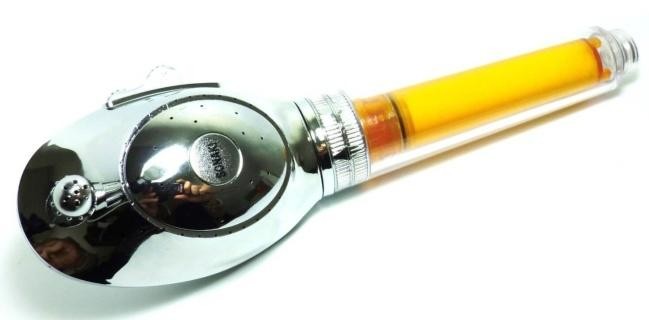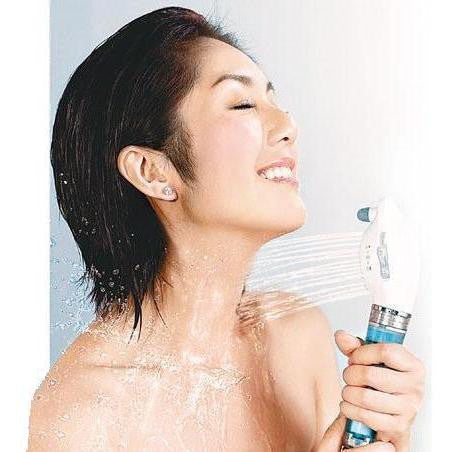The Best Shower Filter Of 2016
The Best Shower Filter Of 2016 by Justin Thomas • January 1, 2016
In A Nutshell
If you want to remove both chloramines and chlorine from your shower, I recommend a vitamin-C based shower filter, like the Sonaki In-Line Filter
The Details
Almost all popular shower filters available today only remove 20% – 80% of free chlorine (not total combined chlorine) from your shower.
This includes shower filters that are certified by the NSF #177 Standard — unfortunately this standard only indicates that a filter will remove 50% of free chlorine in the water.
Also, many cities now treat water with chloramines instead of chlorine. There are no conventional shower filters that will remove more than a small amount of chloramines from your shower water. The only way to remove chloramines is to use a Vitamin-C based shower filter which are only made in Korea and Japan.
Why Filter Your Shower?
Because your skin absorbs substances while showering. Typically, 60% of the chlorine that most people absorb daily comes from showering in chlorinated water. Chlorine damages your hair and skin — you can read about the hazards of showering in chlorinated water here.
Shower water also contains things like heavy metals and VOCs (volatile organic compounds). Ideally, all these things should all be filtered out, but filtering water at the shower head is problematic, because the water is typically hot and under high pressure, making filtration difficult. Carbon filters, which are normally excellent at remove chlorine, cannot handle the volume and heat of shower water.
Because of these problems, most shower filter makers rely on a metallic medium called KDF. Shower filter sellers typically show impressive charts that demonstrate long-term removal of chlorine. However, if you read the tests carefully, you’ll see that they apply to “free chorine” (chlorine that has not combined with other constituents in water), and the unfortunate reality is that KDF-filters have little effect on “total chlorine” (combined chlorine), which is the form in which chlorine exists in most tap water. In fact, chlorine is often added at the water plant as a blend with ammonia called “chloramine.” KDF is not effective at removing chloramine or combined chlorine in general.
Here are the details on my recommended shower filters:
Vitamin C Shower Filter
Vitamin C shower filters are very effective in removing chlorine and chloramines from shower water. Chloramine or NH2Cl (a combination of chlorine and ammonia) is now commonly being used in place of chlorine for disinfection, but chloramines are not easily removed from water. Carbon filters are virtually useless in showers, because they do not work when the water is warm, and they also get clogged fairly quickly. KDF filters also don’t perform well in hot water, and they don’t remove chloramines. However, Vitamin C filters can remove chloramines effectively from water. To back this up, the San Francisco Public Utilities Commission now states on their website that only Vitamin C can be used to remove chlormaines from municipal water. Here is the quote from the Commission:
Vitamin C (ascorbic acid) has recently been included in AWWA Standard (AWWA, 2005b) as one of the methods for dechlorination of disinfected water mains. SFPUC and other utilities have used Vitamin C for dechlorination prior to environmental discharges of chlorinated and chloraminated water. Since ascorbic acid is weakly acidic, the pH of water may decrease slightly (Tikkanen et al., 2001). Ascorbic acid has been used for a long time as one of the dechlorinating agents for preservation of chlorinated or chloraminated water samples for laboratory analysis.
The full document can be found here.
Vitamin C filters are simple in design — they contain a solid block of Vitamin C (ascorbic acid), and water runs through the filter and comes into contact with the Vitamin C. The Vitamin C neutralizes about 99% of the chlorine and chloramines in the water, and their effectiveness does not diminish until the Vitamin C is completely used up.
My recommendation for a Vitamin C showerhead is the Sonaki In-Line Filter
The filters last about 2-4 months before they need replacing, depending on how many showers you take. The filter is transparent, so you can see when the Vitamin C has run out.

